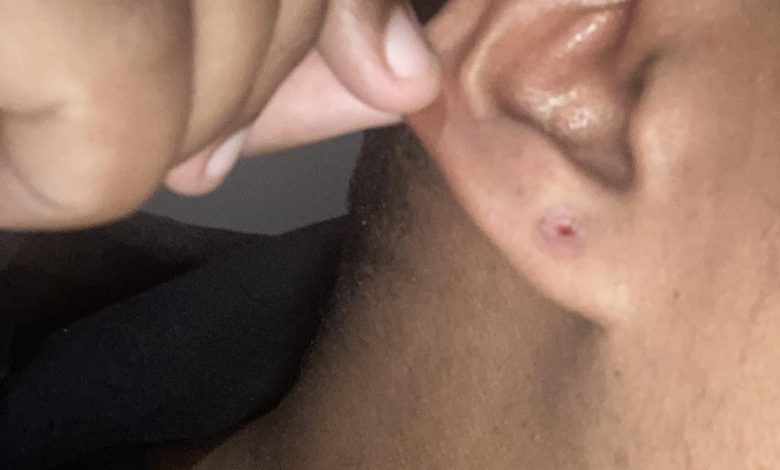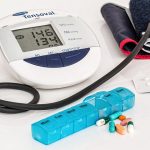List Of Medications That Can Cause Hearing Loss

Hearing loss refers to a partial or total inability to hear sounds in one or both ears. It can be temporary or permanent and can occur gradually or suddenly. Hearing loss can affect people of all ages and can be caused by a variety of factors, including genetics, exposure to loud noises, infections, and certain medications.
There are two types of hearing loss: conductive and sensorineural. Conductive hearing loss occurs when sound waves cannot reach the inner ear, while sensorineural hearing loss occurs when the inner ear or the auditory nerve is damaged.
Common symptoms of hearing loss include difficulty understanding conversations, asking people to repeat themselves, turning up the volume on the TV or radio, and ringing in the ears (tinnitus). If you experience any of these symptoms, it’s important to see an audiologist or hearing healthcare professional for a hearing test.
Drug-induced hearing loss
Drug-induced hearing loss refers to a hearing impairment caused by the use of certain medications or drugs. These drugs can damage the inner ear or the nerve pathways that transmit sound signals to the brain, leading to hearing loss.
There are several classes of drugs that are known to cause drug-induced hearing loss. The severity of drug-induced hearing loss can vary from mild to profound, and it can be temporary or permanent depending on the drug and the dosage used. The risk of drug-induced hearing loss increases with higher doses of medication, longer duration of treatment, and certain individual factors such as age and pre-existing hearing loss.
List Of Medications That Can Cause Hearing Loss
There are various medications that have been linked to causing hearing loss or damage. Here is a detailed list of medications that can cause hearing loss:
1. Aminoglycoside antibiotics: These are a class of antibiotics that can cause hearing loss, especially when taken in high doses or for prolonged periods. Examples include streptomycin, neomycin, and gentamicin.
2. Loop diuretics: These are medications used to treat high blood pressure and edema. They can cause hearing loss or tinnitus (ringing in the ears). Examples include furosemide, torsemide, and bumetanide.
3. Chemotherapy drugs: Certain chemotherapy drugs, such as cisplatin, carboplatin, and bleomycin, can cause hearing loss or damage to the inner ear.
4. Nonsteroidal anti-inflammatory drugs (NSAIDs): Long-term use of high doses of NSAIDs, such as aspirin and ibuprofen, has been linked to hearing loss.
5. Quinine and chloroquine: These medications are used to treat malaria and other diseases, but they can cause hearing loss or tinnitus.
6. Salicylates: Salicylates are a class of medications that include aspirin and other pain relievers. They can cause hearing loss, especially when taken in high doses or for prolonged periods.
7. Antidepressants: Some antidepressants, including tricyclic antidepressants and selective serotonin reuptake inhibitors (SSRIs), have been linked to hearing loss.
8. Antipsychotics: Certain antipsychotic medications, such as chlorpromazine and thioridazine, can cause hearing loss or damage to the inner ear.
9. Anti-seizure medications: Some anti-seizure medications, such as carbamazepine and valproic acid, can cause hearing loss or tinnitus.
10. Erectile dysfunction drugs: Some erectile dysfunction drugs, such as sildenafil (Viagra) and tadalafil (Cialis), have been linked to hearing loss or tinnitus.
It is important to note that not everyone who takes these medications will experience hearing loss or damage, and the severity of the hearing loss can vary. It is also important to talk to a healthcare provider if you are experiencing hearing loss or tinnitus, especially if you are taking any of these medications.
How To Cope With Medications Induced Hearing Loss
If you are experiencing medication-induced hearing loss, there are several ways you can cope with the condition. Here are some strategies to consider:
1. Talk to your doctor: If you suspect that your medication is causing hearing loss, talk to your doctor as soon as possible. Your doctor may be able to adjust your medication dosage or switch you to a different medication that is less likely to cause hearing loss.
2. Use hearing aids: If you have hearing loss, using hearing aids can help you hear better and communicate more effectively. Your audiologist can help you choose the right hearing aids for your needs.
3. Learn communication strategies: Even with hearing aids, it may still be difficult to communicate with others. Learning communication strategies such as lip-reading, using visual cues, and speaking clearly can help you communicate more effectively.
4. Use assistive listening devices: There are many assistive listening devices available that can help you hear better in certain situations. For example, a personal amplifier can help you hear conversations in noisy environments, while a TV listening system can help you hear the television more clearly.
5. Seek support: Dealing with hearing loss can be challenging, and it can be helpful to seek support from others who are going through the same experience. Consider joining a support group for people with hearing loss, or talking to a mental health professional about your feelings.
Remember, it’s important to take action if you suspect that your medication is causing hearing loss. With the right treatment and support, you can manage the condition and continue to live a full and active life.
How to Prevent Medication-Induced Hearing Loss
There are several steps you can take to prevent medication-induced hearing loss:
- Be aware of medications that can cause hearing loss: Familiarize yourself with the medications that can potentially cause hearing loss. If you are prescribed any of these medications, talk to your doctor about the risks and ask if there are any alternatives.
- Follow dosing instructions: Always follow the dosing instructions provided by your doctor or on the medication label. Do not exceed the recommended dose or take medication for longer than necessary.
- Monitor your hearing: Be aware of any changes in your hearing and seek medical attention if you notice any problems. Regular hearing tests can help detect any changes in your hearing before they become serious.
- Protect your ears: Exposure to loud noise can increase the risk of hearing loss, especially when taking medication that can cause hearing damage. Protect your ears by wearing earplugs or earmuffs when exposed to loud noise.
- Discuss with your doctor: If you are taking medication that can cause hearing loss, discuss with your doctor the possibility of monitoring your hearing while on the medication or the potential for reducing the dose or switching to a different medication.
- Avoid ototoxic combinations: Avoid taking medications together that can cause ototoxicity. Your doctor or pharmacist can advise you on which combinations to avoid.
Overall, prevention is key when it comes to medication-induced hearing loss. By being aware of the medications that can cause hearing damage, following dosing instructions, monitoring your hearing, protecting your ears, and discussing with your doctor, you can take steps to reduce your risk of hearing loss.





